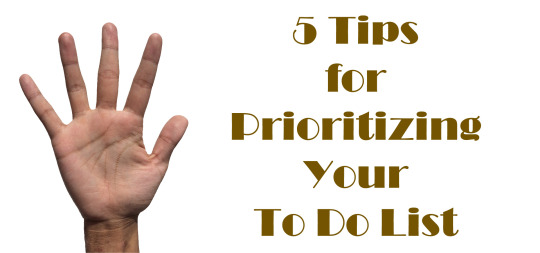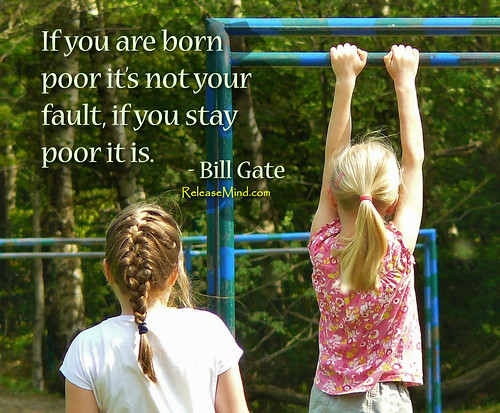Wholesome Habit of Prioritizing Your Daily Tasks with Five Questions
published on
In creating your to-do lists, it is wholly imperative to keep priority in mind. After all, you want an organized list that cuts through the swaths of molehill sized problems right down to the mountainous ones. In order to keep your to-do lists efficient, we recommend prioritizing your list based on answering these key questions.
1. Is it a step towards your goals?
First, you must find a clearly expressed goal. Is your goal professional, or more of a personal dream? There is no shortcut to success. Time is the valuable resource to do so. But are you really being productive, or just being busy that waste your time and energy. Necessary actions can be important, but if they line up with your overarching goal, they are doubly so.
Napoleon Hill, the author of the legendary self-help book, “Think and Grow Rich”, once said, “Success comes to those who become success conscious. Failure comes to those who allow themselves to become Failure Conscious.”.
What do you read? I know many people only read Facebook.
Who are you spending your time with? Most people are social with default friends, who allow you to feel social comfort at the moment but steal a lot of your time.
If you don’t spend time on networking your stakeholders, you would work alone that limits your success. You have to invest time and money in yourself. This is why it’s important to keep your vision in your sights.
Related: Think Big, Start Small, And Plan For Success
2. Is it important to your boss, or work?
This question is applicable no matter whether you’re an employee or an employer. If you’re running a business, your boss would be your customers and stakeholders. You and your organization are working for them and thinking about their needs. If you’re an employee, you exchange your time for your salary. Your boss is willing to pay you according to your results, rather than your hard work.
A good tip to maximize your performance at work is that when you are assigned day projects, to ask when your boss wants it. This gives you a time frame, and lets you know when he or she expects the project to be due. This process is just like a marketing research to identify customer needs, a small step of being well on the way to success.

3. Is this a lucrative or finance related venture?
Money might not be the end goal, but it is helpful to finding comfort in life and affording to follow your dreams and aspirations. This will likely parallel the second point of being important to your boss and work. Our society is basically money-conscious. You don’t need to be selfish but it’s your fault if you don’t learn about wealth.
Asking if a task makes money is a good question to identify the values and contributions of its outcome in a measurable way. Your life is a business. You’re selling yourself to your family members, your friends, your teammates, your boss and your clients. You make money when you help others also make money. When you help others every day, you help yourself and grow wealth.

Related: Stepping Up Your Money Saving Habit as Successful People
4. Does it reduce your cognitive load?
Reducing your cognitive weight is a great start to freeing stress and thoughts weighing you down, and allowing you to tackle your daily projects in a productive and efficient manner. Everything is about balance; neither too many as to be overwhelming nor too few leading to boredom.
A to-do list is to figure out your tasks and fit them into your schedule. You should cut your to-do list in half when your stress suppresses your brain performance. You can pick up a few enjoyable tasks to regain your motivation when you are feeling burnout. The rule is up to you. If you get worse as you procrastinate, you should do a task as soon as possible. Some tasks because easier after continuous practice. Only you know about your cognitive feedback. You might further ask about how to allocate your time, your money, or any resources to solve your headache.
5. Does it have to be done today?
If it must be done today, then it must be done today. Say you need to talk to customer service to pay off some important bills. It’s still important to rank on your list. Perhaps your boss needs a project done today too, and needs priority over this project. That’s why your list is important.
Almost everybody tells you his or her deal is urgent and important, but you are not a magician. You should avoid over-commitment, and learn to say ‘No’ appropriately. Your list allows you to estimate your capacity and optimize your workload and deadline by negotiation with your team.
Related: The Benefits of A Weekly Review Process

In creating your to do list, write down everything that needs to be done. Then start to score them by asking the above 5 questions to each task you have. The more “yesses” you answer to these questions, the higher you should rank them on your list. The more “no’s”, and you should drop it lower on your list. These questions will help you logically organize your life. If it’s higher up, it should take priority over another item lower down on the list. Of course, some things should take precedence disregarding these questions. For example, if it’s a legal matter like going to jury duty or such.
However, you should be aware of a few things before you embark on scoring your priority. The first is that you should be aware of all of the things you need to do. The second is that you need to jot things down early. The earlier you write it down, as long as you check your list often and act on it, the quicker you can forget trying to keep it in the back of your mind. This lightens your cognitive load and allows you to focus on acting sooner rather than being weighed down by thinking about it, and still prioritizing. Once you have all these future actions mapped out, you don’t have to worry about what you still need to do and in what order. All you need to do is do.
As a side tip, form a helpful habit. After you write down everything you need to do, each night before you go to bed, think about what you need to do tomorrow. Write down 3-5 items that must be done tomorrow. The next day, act on it. This will help reduce stress, improve your well-being, and lighten your mental load. The reduced focus on stressful items will help you relax before bed, and getting into a habit before going to sleep has been correlated to an easier time falling asleep.
Related: 5 Popular Daily Habits of Successful People